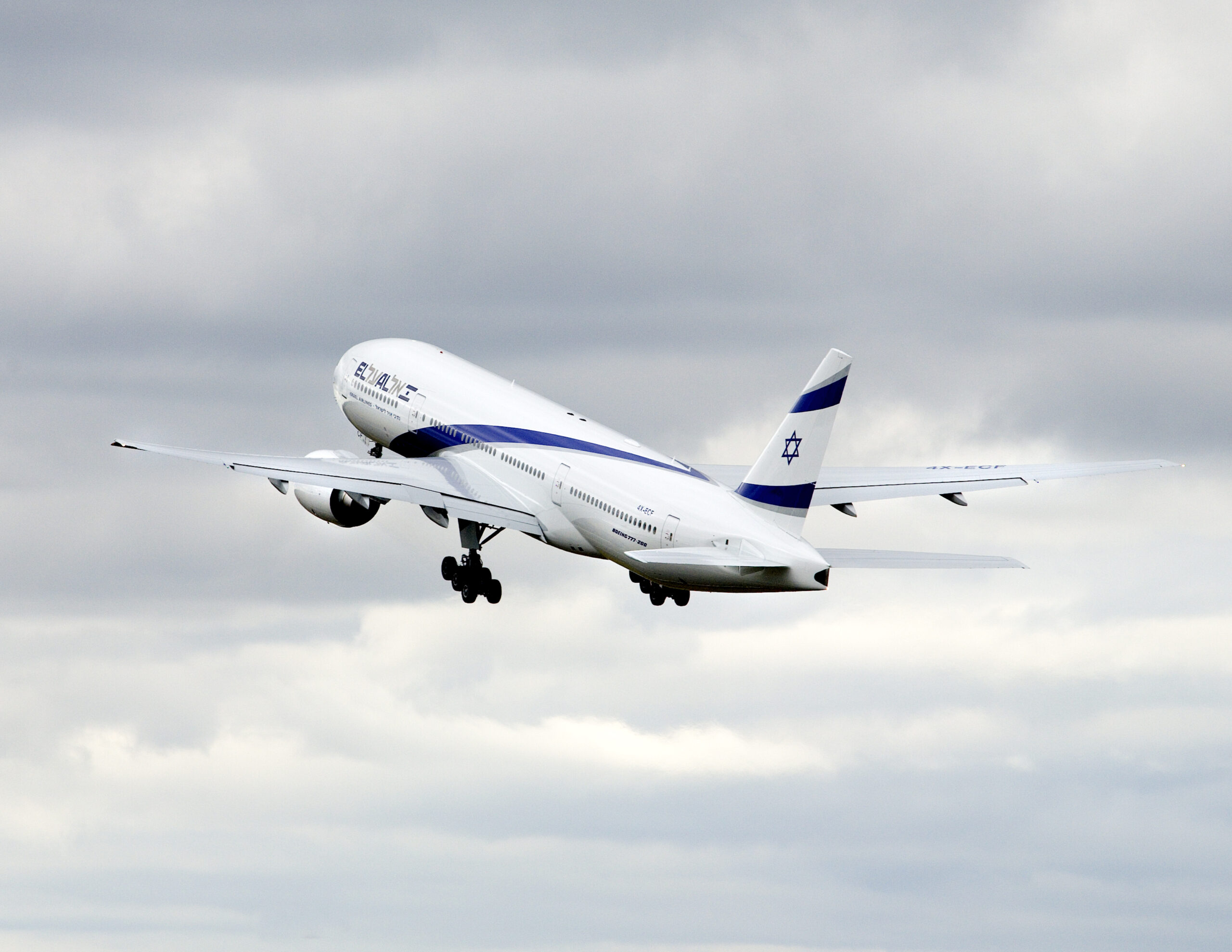Israel’s Airport Shuts Down, Airspace Closes—What It Means for U.S. Flyers
Ben Gurion Airport is shut down, Israeli airspace is closed, and airlines from the U.S., Europe, and the Middle East suspend routes amid escalating Israel-Iran conflict
by George Gomez
June 16, 2025

Photo: Tel Aviv Airport. Courtesy of Briana Tozour / Unsplash
Israel has effectively been cut off from international air travel as Ben Gurion Airport (TLV), the country’s primary international gateway, remains closed to all arrivals and departures until further notice. The shutdown comes after Israeli airstrikes on Iran’s nuclear and military facilities, escalating regional tensions and prompting a widespread collapse of air traffic across the Middle East.
As of June 16, the Israel Airports Authority has advised travelers not to go to the airport and instead monitor airline websites for updates. The abrupt closure and the ensuing airspace lockdowns have forced airlines around the world to cancel hundreds of flights or reroute them, disrupting a key corridor linking Europe and Asia.
Israeli Airlines Evacuate Their Fleets
Anticipating retaliation from Iran, Israel’s three major carriers—El Al, Arkia, and Israir—relocated their aircraft out of the country in recent days.

Photo: El Al Israel 1st 787-9. Courtesy of Boeing
The planes were flown out without passengers as part of the contingency plans that were developed in the days leading up to the strike. “Israir said it was evacuating and relocating its aircraft from the airport,” The Times of Israel reported, while El Al stated it was moving planes “to our destinations.” Arkia declined to disclose its aircraft’s locations.
Flight tracking data showed aircraft from all three airlines heading to Cyprus and various destinations in Europe. Even Israel’s official state aircraft, the “Wing of Zion,” departed TLV and was later seen in Greece.
Airspace Closures Across the Middle East
Following the Israeli military operation, Iran, Iraq, Jordan, and Syria all closed their airspace. Iranian airspace, in particular, was shut “until further notice,” according to state media and NOTAMs. The result has been eerily quiet radar images, with flights avoiding key areas and rerouting over Saudi Arabia and Egypt.
Global air traffic with nearly 22,000 flights in the air. The recent clearing of airspace between Israel and Iran standing out in this image. pic.twitter.com/AWU5hatDUx
— Flightradar24 (@flightradar24) June 13, 2025
The implications are vast. Iraq’s eastern border with Iran serves as one of the busiest air corridors connecting Europe to Asia. According to Eurocontrol, roughly 1,800 flights were affected across Europe on Friday, including 650 cancellations.
Commercial Flights Turn Back Midair
Flight disruptions began almost immediately following the Israeli strikes on June 13. Multiple long-haul aircraft were forced to turn around or divert mid-flight.
Air India diverted or recalled 16 flights between India and destinations in Europe and North America. Two of its flights—New Delhi-Vienna and Mumbai-London—were already nearing Iranian airspace and had to return to their origin points. A London-New Delhi flight was rerouted over Iraq and arrived about an hour late.

Photo: Courtesy of Boeing
Delta’s Tel Aviv-bound flight from New York JFK turned back over the Atlantic, resulting in an 8-hour round-trip to nowhere. United Airlines similarly diverted its Newark-Tel Aviv flight on June 13, less than 10 days after resuming service on June 5. American Airlines had previously suspended its Israel service altogether through April 2025.
Airlines Suspending Flights to Israel
The cascade of cancellations has left Israel almost entirely disconnected from the global aviation network. Here is the current status of U.S. and international airline suspensions:
U.S. Airlines
- Delta Air Lines: JFK-Tel Aviv suspended through August 31
- United Airlines: Newark-Tel Aviv suspended until further notice
- American Airlines: Flights suspended until further notice
European Airlines
- Lufthansa Group (Lufthansa, SWISS, Austrian Airlines, Brussels Airlines, Eurowings): Suspended Tel Aviv and Tehran flights through July 31; Tel Aviv flights halted entirely for SWISS through October 25
- Air France-KLM: All Tel Aviv flights suspended; KLM until June 30
- British Airways: Flights to Israel canceled until July 31
- Ryanair: Tel Aviv flights suspended through August 31
- EasyJet: Flights to Israel suspended through August 1
- Wizz Air: Operations to TLV suspended indefinitely; rerouting all flights that would have overflown the region
Middle Eastern and Other Airlines
- Emirates: Flights to/from Iraq, Jordan, Lebanon, and Iran canceled
- Qatar Airways: Temporarily halted operations to Iran and Iraq
- Turkish Airlines and Pegasus: Withdrawn entirely from TLV since October 2023
- Air India: 16 flights diverted or returned mid-flight
- Ethiopian Airlines: TLV services have been suspended since October 2024
- LOT Polish Airlines: Flights to Israel suspended through June 15
A handful of airlines, including flydubai, Iberia, and Blue Bird Airways, were reported to maintain limited service in early June, but their current operational status remains uncertain.
A Region on Edge
The current shutdown is the most significant interruption to Israel’s aviation sector since the outbreak of the Hamas-Israel war on October 7, 2023. Since then, the region has seen repeated spillovers of conflict involving Lebanon, Yemen, and now Iran.
Israel has warned that its military operation targeting Iran’s nuclear sites and missile programs could continue over an extended period. In the meantime, Ben Gurion Airport, normally bustling with international traffic, remains silent. A Channel 12 report suggested the closure might last 3-4 days, but the Airports Authority declined to confirm a timeline.

Photo: El Al, Boeing 777-200ER. Courtesy of Boeing
Airspace closures, drone attacks, and long-range missile threats are making an already volatile region even riskier for civil aviation. And while no commercial aircraft has yet been hit, the skies over the Middle East feel increasingly unsafe.
As a reminder, global aviation history shows that six airliners have been unintentionally shot down since 2001, including Malaysia Airlines flight MH17 over Ukraine and Ukraine International Airlines flight PS752 out of Tehran.
What Travelers Should Know
For now, business and leisure travelers should avoid scheduling flights to or through the region. Airlines are offering refunds or rebooking options depending on fare rules. Passengers are urged to check their airline’s website before heading to the airport and to stay informed about the reopening of Israeli and regional airspace.
Travelers with urgent needs to reach Israel may want to monitor updates from embassies or consider connections via Cyprus, Greece, or Amman once conditions stabilize.
Until then, Israel remains grounded—both literally and geopolitically.




